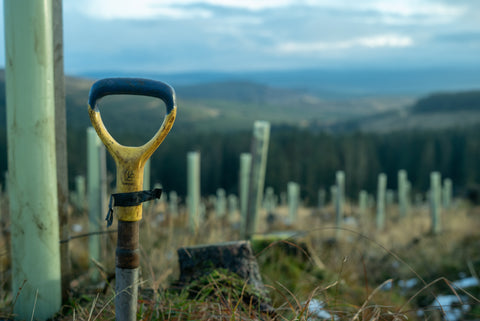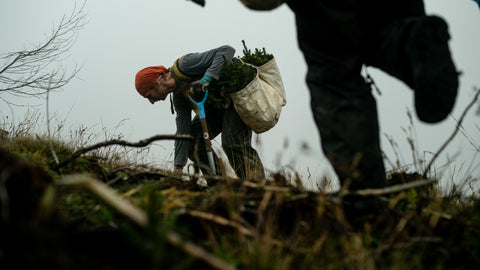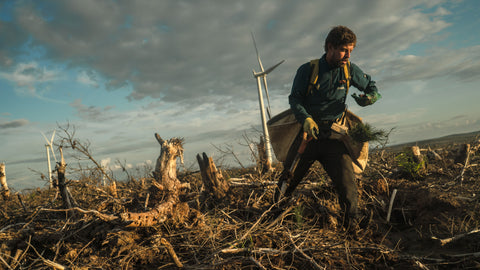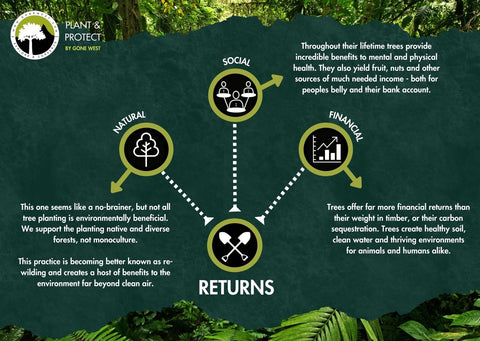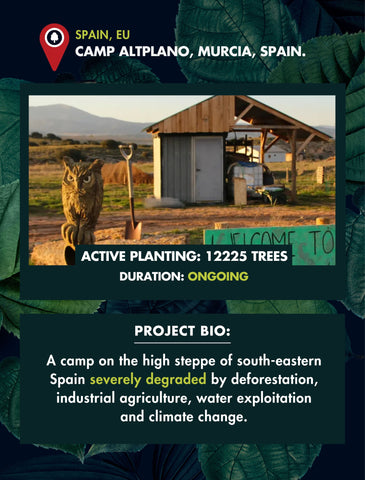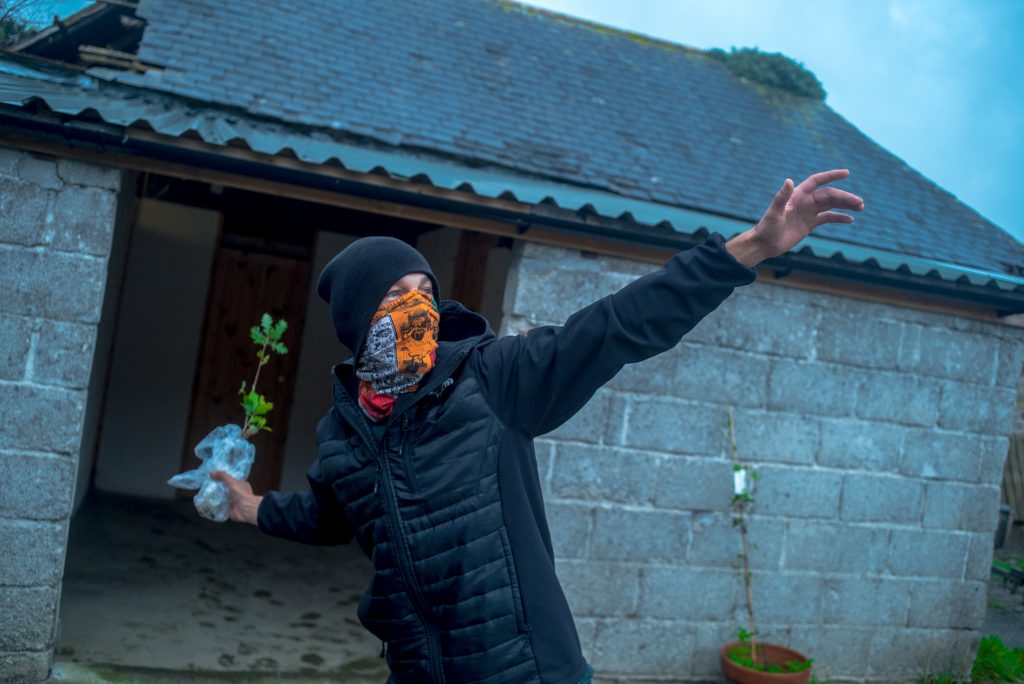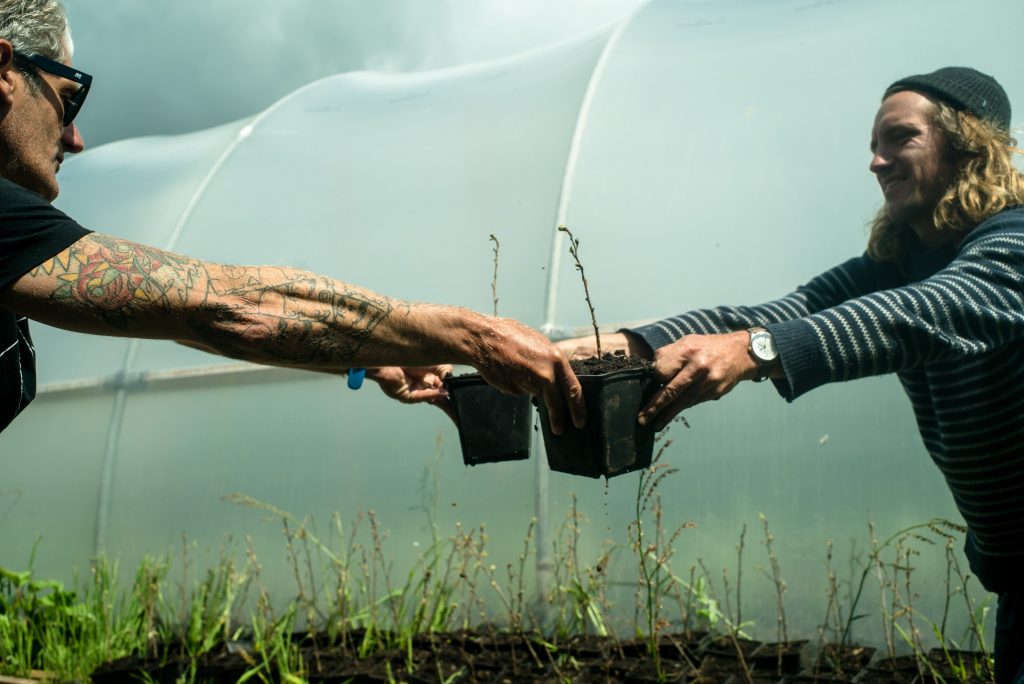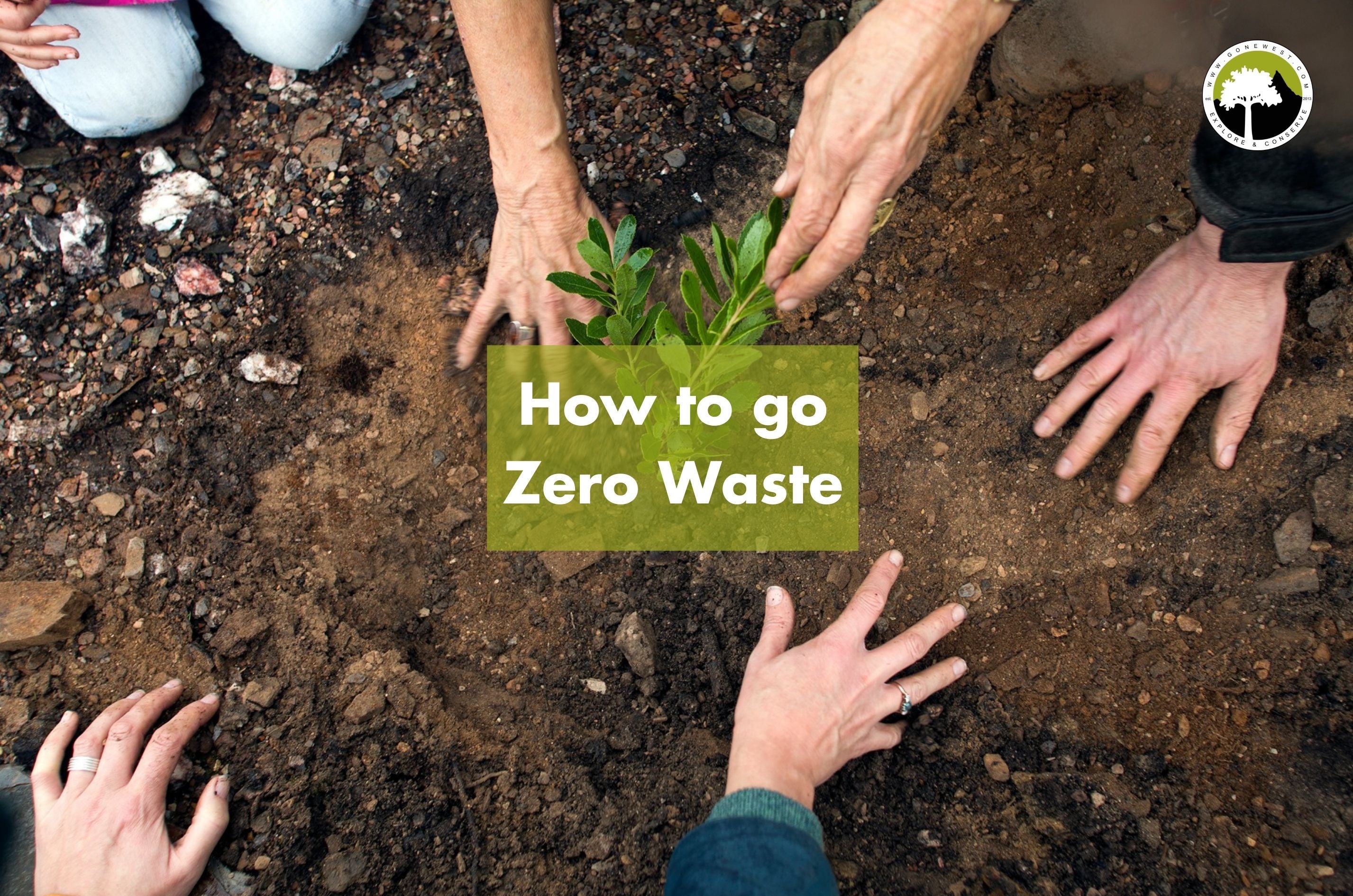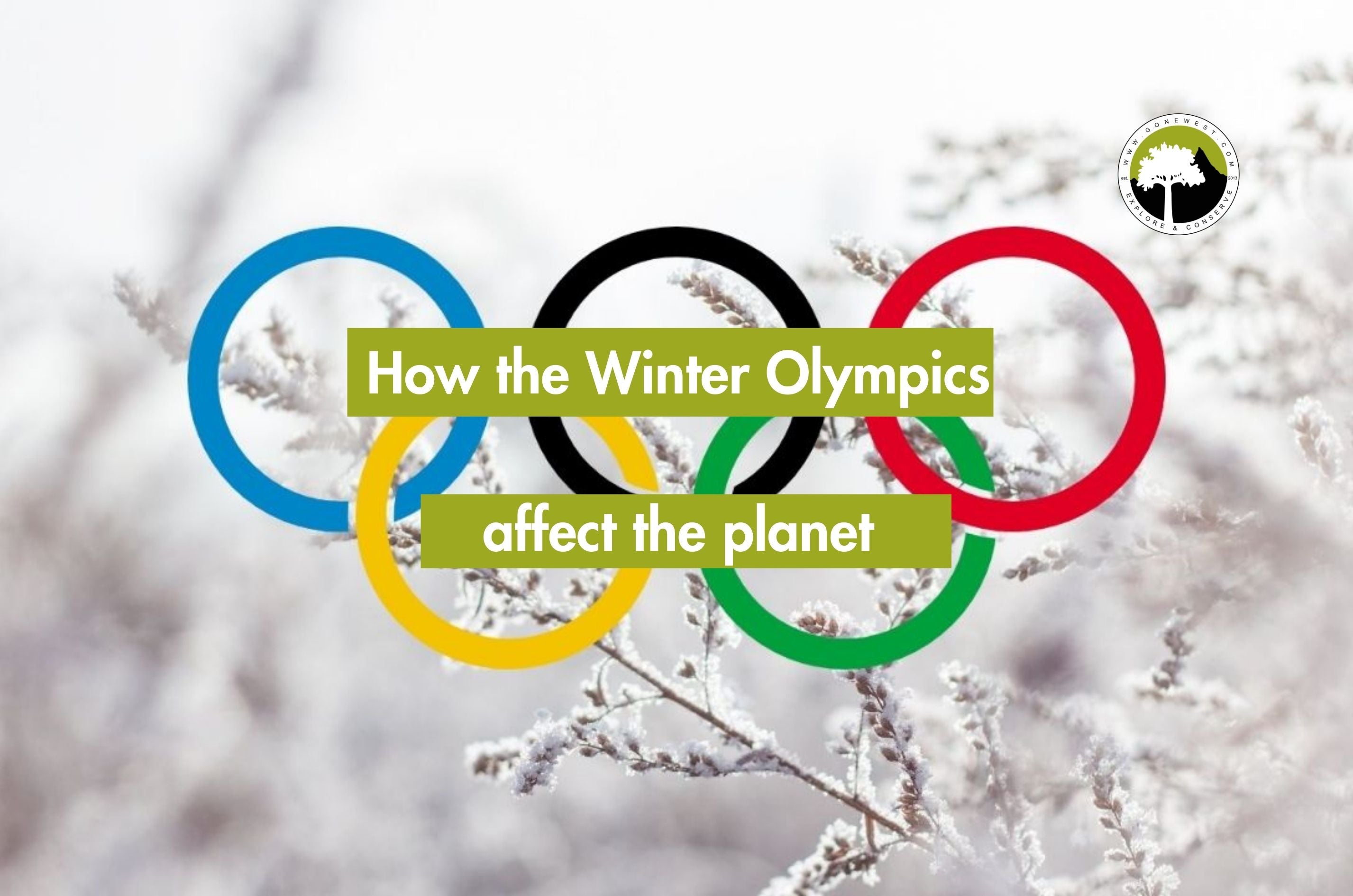We want to talk about the new surge of companies who are starting to plant trees to make them seem more eco-friendly to consumers when this in fact is a form of Greenwashing. Too many companies exploit the green wave to gain a better perceived public image or gain more consumers/customers.
It’s to no surprise that a lot of us directly associate planting trees with a company being green. With just 2% of the UK remaining as ancient woodland, and deforestation accounting for 10% of global carbon emissions, it’s natural to presume that the more trees, the better.
Startling, research shows that an alarming 40% of ‘green’ claims being made by businesses could be considered misleading, mostly due to:
- Incorporating words such as eco-friendly/ sustainable/ environment-friendly/ for the Earth without the facts and stats to back up these claims.
- Hiding or omitting information to clearly make products or services appear more ‘green’ than they are.
Before you dive in, why not check out our woodland forestry services? Including a service in which you can offset your traveling impacts by planting trees to combat personal carbon footprints, which we offer here.
What Is Greenwashing?
So first off a definition of “Greenwashing” is the process of conveying a false impression or providing misleading information about how a company’s products are more environmentally sound. Greenwashing is considered an unsubstantiated claim to deceive consumers into believing that a company’s products are “environmentally friendly”.
One way it’s continually used and exploited is the claims made by companies for example, businesses who dabble in greenwashing will state that their new product is made from recycled materials, when in fact as little as 1% of recycled material can be used to make this claim. Making claims like this make it seem like the company is doing a lot more than it claims to be and in the process deceives consumers.
The actual term Greenwashing is reportedly a play on the words and term “whitewashing,” which means deliberately attempting to conceal unpleasant or incriminating facts regarding someone or something.
How Greenwashing Works
Greenwashing is a scheme to capitalize on the growing demand for environmentally friendly products and services, whether that means they are natural, healthier, have less chemicals, are recyclable, or less wasteful of our dwindling natural resources.
Most if not all big corporations are guilty of greenwashing, a lot of the time these companies make unsubstantiated claims that their products are environmentally friendly or safe to the environment or make a statement of some sort of benefit for the planet. A new emerging way is a lot of companies attempt to sneakily rebrand themselves as champions of the environment by claiming their products are more ‘natural’ through a process of renaming, rebranding, or repackaging them. They normally claim they are giving back to the environment but what they actually state is that for every product sold, we “will donate a tree”. When in fact, this is one tenth of a fraction of what they have actually destroyed in the process of building and manufacturing this product.
Greenwashing in the Tree Planting Industry
The greenwashing evolution has continued to grow. It is used by a massive array of huge corporations, even brands such as adult website Pornhub to corporate giants such as Starbucks are now exploiting tree planting as a marketing tool.
Tree planting without due caution and diligence can do much more harm than good for our environment. Tree planting is not what you think the process is. Most people would think to find some ground and plant a sapling and be done with it, but that’s not what happens at all (if you are doing it properly).
Companies like us spend a lot of time money and resources into planning tree planting it’s a very meticulous precarious thing, a whole plethora of things needs to be accounted for before we plant trees, ranging from if we can hire locals to do it, native saplings to purchase, correct terrain and the benefits of planting the tree there and the upkeep and continued care of the trees which take as long as 100 years to reach maturity.
How To Avoid Greenwashing
Businesses should live up to all environmental claims they make. But many still continue to say stuff that is factually incorrect and overstate or exaggerate the sustainability or environmental impact of their products, services, brand or activities. These claims should be used with proof of positive environmental impact. Another way companies will bend the truth is to state they are ‘eco friendly’ when they are simply complying with that standard’s legal requirements.
Below are some of the major themes to look out for when supporting a tree planting company or endorsing a company that claims to donate trees for every product etc.
Plantation vs Reforestation
One of the most common ways companies will support ‘tree planting’ is actually in the form of plantations, which are essentially made for farming, and people make them because they reap many cash crops.
These are not the same as forests as they are often reproduced using the cheapest and fastest-growing species. A lot of the same breed is used, which is the complete opposite of a natural diverse forest. Tropical forests in some cases, take up to 65 years to regrow, and a monoculture of reforested plots cannot replicate their diversity.
A plantation is not a reforestation effort.
Species of Trees
Reforestation and afforestation schemes must decide which species are appropriate to plant – native or exotic, multi-purpose or fast growing, naturally regenerating forests or managed plantations. It is of the utmost importance to plant the correct species but a lot of times the wrong species are chosen. Some greenwashed companies will choose the fastest growing and whatever makes them the most money in return.
The correct species need to be planted. Suppose random trees are planted without regard to their needs, such as climate temperature landscape. In that case, they will inevitably die out, as invasive species can and will impact agriculture, forestry and fishing. Plants and animals can take over these areas, cause irreparable harm to local or global economies and the surrounding ecosystems, and even harm humans. These species can kill off native crops and animals.
Whereas companies like Gone West will look and research for the best way to sustainably plant trees, one way to do this is by planting the most suitable species that can become the biggest carbon sinks. A way in which we can highlight this is the Mangroves project. Sustainable leader Jon Khoo has stated that mangroves are an elite way to help better absorb carbon and create carbon sinks. We have been privileged enough to partner with Camp Mombasa Mangrove who have achieved the milestone of planting a million mangroves.
We still have a long way to go. If you are interested in our work with the mangroves or would like to donate to this venture, please visit us here.
Management
Trees need an abundance of care.
Tree species take a long time to grow and need continual care.
This is what most ‘plant and go’ incentives fail to see that once the tree is planted there is still a lot of care and processes needed to see these trees thrive. Many companies fail to do this. Saplings and young trees are always competing to live as they are particularly vulnerable to disease and compete for light and nutrients. If not cared for and managed, they will eventually die.
Does the company encourage over consumption?
Now it seems that almost every brand on Instagram plugs the classic “plants a tree for every purchase”. What’s interesting is that most of these companies only do incentives such as these to seem that they care about the earth and want to appeal to eco-conscious buyers, but they do this simply to cover their tracks of being an exploitative business.
No business regardless of donating trees is truly green if their business ethos relies on the over-consumption of goods and services. No amount of trees donated will equal what they’ve destroyed in the process of making, selling or marketing their products, encouraging a capitalistic society. Once a forest is destroyed it can never be truly brought back to its original biodiversity.
Part of the attraction of planting trees for companies is that they get some good publicity from it with news articles sharing about their ‘green movements’. Yet all the while it still encourages their customers that their over-consuming is actually benefiting the environment.
Research any claims made!
Make sure to research any claims the company has made. They should be able to back up any claims they make with credible, up-to-date evidence. Wherever possible, this information should be publicly available if it is actually true.
This requirement can sometimes be satisfied through a respected third-party environmental standard or certification.
If you are enjoying this article, why not check out Gone Wests Blog Page to keep up with all our posts and exciting ventures.
Gone West
On one hand, when corporate social responsibility schemes are researched and executed in the right way, collaborations can help fund real schemes. For example, we have already managed to do so in the form of our partnerships with companies such as Loft, MyVegan, Hammer Brewery etc. These partnerships have enormous environmental potential and under good management, protection and careful species selection can provide a wealth of rewards for both businesses and their relationship with nature.
So don’t be put off in future when wanting to support an eco line or a green company. Just make sure you know more about the business and products before you fully commit to supporting or purchasing their products.
While we are at it, here is a list of companies that we support and endorse that you should check out:
The History of Greedy Corporate Greenwashing
The practise dates back to the early 1960s when the hotel industry devised a blatant example of greenwashing. To act like they cared about the environment, they placed signs in their rooms asking guests to consider reusing their towers, “in order to help the environment”. The hotels did not contribute anything towards the environment but enjoyed the benefit of much lower laundry and detergent costs. 6 decades later it has become much more conniving and sophisticated from small statements to outrageous corporate environmental claims.
But the term was formally coined by environmentalist Jay Westerveld in 1986, as this was when most consumers received their news from television, radio and print media. Due to their being limited public access to information and the internet not readily available for most people, this allowed businesses to present themselves as champions of the earth, whilst actively engaging in environmentally unsustainable practices.
Examples of greenwashing throughout the years:
- Starbucks released their no-straw lids in an erroneous effort to save the oceans; their solution did exactly the opposite by increasing their plastic pollution.
- Volkswagen produced a ‘cleaner’ emissions car to meet new legal standards in the US but they actually sneakily used defeat devices on its diesel engines, causing them to only activate their emissions controls during laboratory testing. The result was these cars emitted up to 40 times more NOx in real-world driving than they did under test conditions.
- PepsiCo advertised their bottles as 100% recyclable which misleads consumers to feel like they’re an environmentally conscientious company while using single-use plastic packaging just the same.
- Quorn Foods, a vegetarian vegan/brand reportedly misrepresented a commitment to reducing its carbon footprint.
- Nestlé chocolate marketed their chocolate as sustainably sourced when the company’s cocoa supply chain in West Africa had “virtually no environmental standards in place”.
- IKEA was linked with illegal logging in Ukraine. They used the wood certification scheme, ‘Forest Stewardship Council’, described in an investigative report as an organisation that “green washes the timber industry”.
Actual Benefits Of Tree Planting
Trees are vital. Vital for us and every species which lives on Earth as they give us oxygen, store carbon, stabilise the soil and give life to the world’s wildlife. They also provide us with the materials for tools and shelter. Replanting our already decreasing tree population is one of the major ways in which we have to fight climate change and the nasty that comes with it.
Trees are absolutely essential to counter the effects of global warming, and our forests are, quite literally, the lungs of the Earth. To avoid a 1.5°C global temperature rise we must remove 730 billion tonnes of carbon dioxide from the atmosphere by the end of this century which trees can help with as they are essentially carbon sinks.
Planting extra trees to combat climate change across Europe could also increase rainfall, research suggests.
In addition to this, deforestation directly contributes to issues such as species going extinct, lack of water, habitat destruction and increased air pollution. A solution to this is by trying to rebalance deforestation by planting more trees in our surroundings, by supporting companies like Gone West whose aim is the reforestation and the repopulation of native trees.
Every company that decides to offset their carbon footprint plants directly through one of the Plant&Protect projects. This not only means that the company planted trees on their behalf but in a viable location with protection.
To Plant and Protect means to plant trees in respect to their environment and establish stewardship practices that protect them throughout their entire lifespan. Quite different from your classic forestry operations or greenwashed options. As you might know, the forestry sector reduces the value of trees by focusing only on the timber they can produce and the carbon they can sequester.
Through our Plant and Protect scheme, we ensure the trees are planted and protected, but we also ensure carbon offsetting and give assurance to the projects that we will help them by supporting, establishing, and maintaining them.
Each agreement within the Plant and Protect scheme is tailor made and determines the specific type of support Gone West can offer while respecting the scheme.
Not only does tree planting help our planet physically, tree planting helps our goal of the generation of ethical, green jobs and help establish or restore natural habitats. By creating meaningful jobs in tree planting, people can make a living while helping the environment. One great example of our plant and protect projects is the work currently going down at Camp Altiplano in Spain.
This project aims on planting 5000 native trees and restoring 620,000 acres of land which will consequently improve the overall ecosystem, the water retention/pond creation and help to produce viable profitable crops for the community(from the 1500 hectare almond and grains heritage farm) through the works of our experts and local volunteers.
If you want to check more of our incredible Plant and Protect schemes or projects visit us here.
Invest in Gone West (Capital at risk. Approved by Seedrs)
There are a plethora of reasons as to why you should invest with us. The main reason being that you will be helping support a real tree planting business and not just a green washed outlet used to bigger the egos of greedy conglomerates. Not only will you be helping communities, trees and ecosystems but you will also be reaping the financial rewards.
There are now more climate-focused investment options than ever before and in July 2020, Moneyfacts revealed that 140 ethical unit trusts had grown by 4% in the 12 months to 1 July 2020 compared to a contraction of 1.5% for those not in the ethical category.
If you are passionate about the environment and trees, choose to invest with us as we want to relate to investors who want to invest based on their own ethical values and beliefs.
We hope you have enjoyed reading our article. Please visit us here to register to invest with us.
Stay in the loop
Subscribe to our newsletter.
Everyone loves to get away, especially after two long years of a global pandemic. From city breaks to countryside getaways, we’re all itching to get out and about and [...]
June 23, 2022
Zero-waste living has been on the rise for quite a fews years. The movement started gaining traction when the public were made more aware of the severity of the [...]
May 15, 2022
As the world is getting back to normal and we’re beginning to travel more freely without restrictions, it’s a good time to start thinking more eco-consciously when planning your [...]
April 30, 2022
We’re sure that you, like us and many other people, are entirely burned out by bad news. Whether it’s bad news about politics, the economy, or the environment, we’ve [...]
April 14, 2022
We’re a few weeks into the Winter Olympics, with people from all over the world participating, attending, and tuning in. The event is all about celebrating people and their [...]
February 17, 2022

